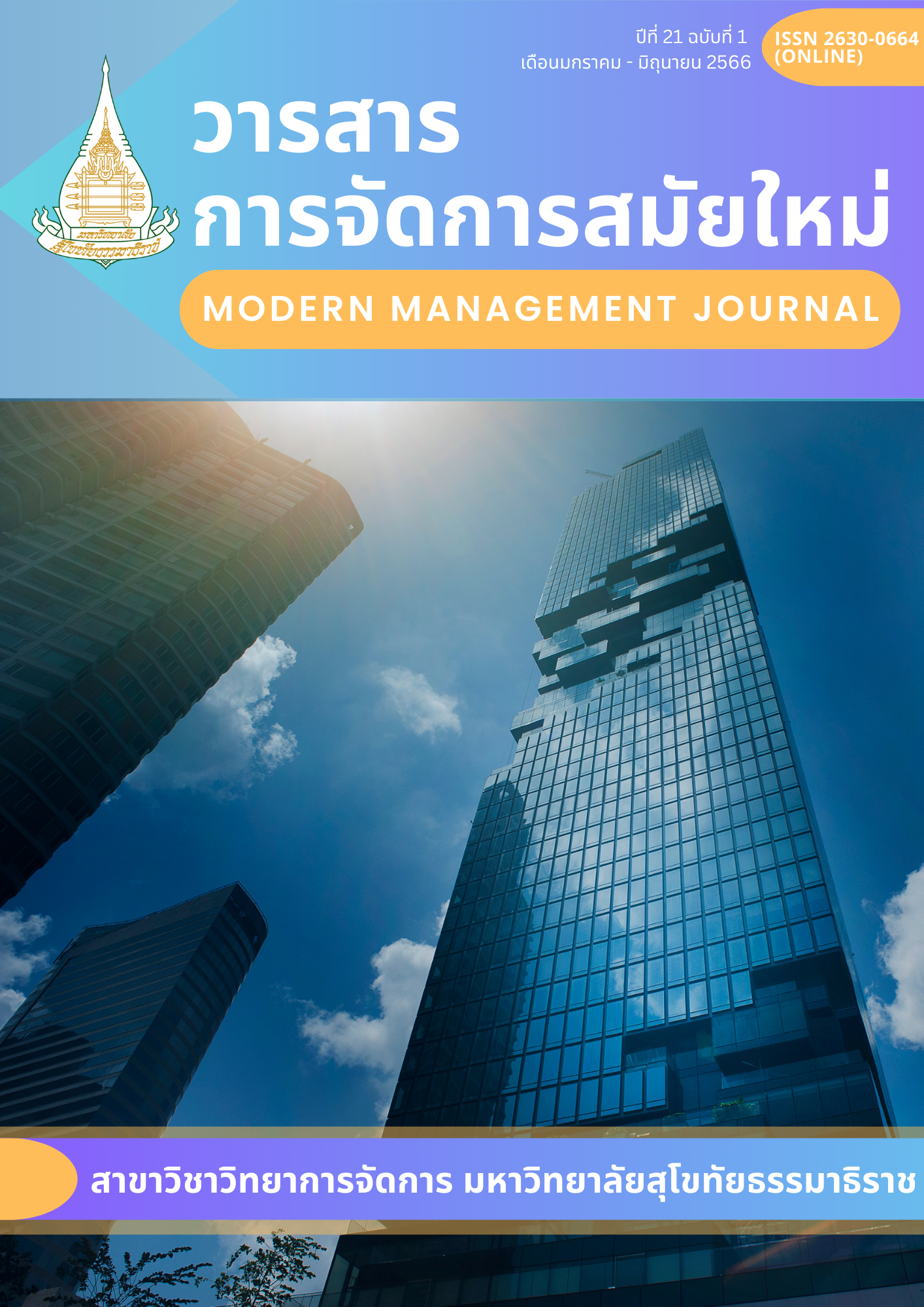Crisis Management of Sole-owner Hotel during Coronavirus Pandemic 2019 in Bangkok
Keywords:
Crisis management, Coronavirus 2019, Sole-owner HotelAbstract
The purpose of this study is to determine how the Sole-owner hotel manages their crisis and the effect of government bailout during coronavirus pandemic 2019 in Bangkok. The sample group were 136 hotel operators in Bangkok. The results showed that the overall level of concern regarding hotel and crisis management during coronavirus pandemic 2019 were high. The results of interviews showed that, in term of planning, founding hospitel, changing of employer duties and reducing some positions were done. For internal structures, building confidence and understanding among employees whose duties in contact with patients, cutting down unnecessary operating costs and supervising employees according to Amazing Thailand Safety & Health Administration (SHA) principles were planned. In term of crisis management, planning and communicating with guests and employee according to SHA. Regarding future, the recovery of hotel business will be slow due to the country will not fully opened for tourism. With respect to the bailout, supporting employee wages, suspension of loan payment, measures to stimulate tourism, supporting health expenditures and building confidence towards opening the whole country were expected from the government.
References
Coombs, W. T. (2007). Protecting organization reputations during a crisis: The development and application of situational crisis communication theory. Corporate Reputation Review, 10(3), 163–176.
Chatkul, N. (2011). Tourism Industry. Bangkok: Chulalongkorn University Printing.
Chamnina,E.(2020).Public Sector Capabilities in Tourism Management under the Situation of Communicable Diseases Coronavirus 2019 (COVID-19). Journal of Buddhist Social Sciences and Anthropology, 5(11), November 2020. [In Thai]
Chaiyo, A & Mahaprom, M. (2020). Crisis management of the accommodation business in Thailand under the crisis COVID-19. Dusit Thani College Journal, 14(3), 685-700. [In Thai]
Ghaharian, K. & Abarbanel, B. (2021). Crisis management practices in the hospitality and gambling industry during COVID-19. International Hospitality Review, 35(2), 171-194.
Kathleen, F. B. (2017). Crisis communication a casebook approaches (5th Ed.). New York: Routledge.
Sawkham, P. (2016). Hotel Management Strategies : A Case Study of Small Hotels in the municipality Chiang Rai Province. Dusit Thani College Journal, 10(1). [In Thai]
Robbins& Stephen P. (2004). Organization Behavior. (9th Ed.). New Jersey: Prentice – Hill
Samuel C. Certo. (2003). Modern Management. New Jersey : Prentice Hall
Steadmon, C. E. & Kasavana, M. L. (1988). Managing front office operations. East Lansing, MI: The Education Institute of the American Hotel & Motel Association
Wut TM, Xu JB, Wong SM. (2021). Crisis management research (1985-2020) in the hospitality and tourism industry: A review and research agenda. Tour Manag, 85, 104307. doi: 10.1016/j.tourman.2021.104307. Epub 2021 Mar 3. PMID: 36345489; PMCID: PMC9630659.
Timothy, W. C. (2012). Ongoing crisis communication planning, Managing, and responding. USA: Sage.
Ulmer, R. R., Sellnow, T. L., & Seeger, M. W. (2011). Effective crisis communication moving from Crisis to opportunity. (2nd Ed). SAGE Publications, Inc.
Downloads
Published
How to Cite
Issue
Section
License
Copyright (c) 2023 Modern Management Journal

This work is licensed under a Creative Commons Attribution-NonCommercial-NoDerivatives 4.0 International License.



